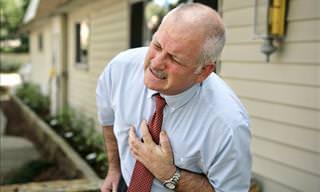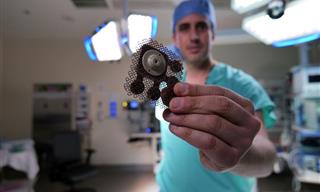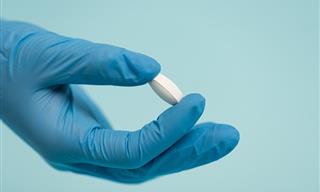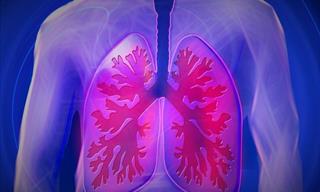
The association also suggests that another 12-24 million people may have the condition without realizing it. Along with COPD, some other common lung inflictions are asthma, tuberculosis, bronchitis, cystic fibrosis, and emphysema. Current or former smokers and people who are frequently exposed to irritants are at a higher risk of developing a lung disease. Other factors that put your lungs at risk include infections and exposure to allergens, air pollution, workplace fumes, sawdust, or other aerosolized particles.
To keep your lungs healthy, you must know the signs that indicate a lung problem. Addressing it early on will help protect your lungs from severe damage, while reducing the risk of chronic lung diseases and cancer.
Below are some key signs that indicate that your lungs could be in trouble.
1. Labored Breathing
If you experience labored breathing, even when you’re carrying out your daily tasks, it’s another sign that something is wrong with your lungs. Shortness of breath or labored breathing occurs when your lungs have to work harder than usual to move air in and out of your body. It can also occur due to some kind of blockage in the airway.
When experiencing shortness of breath, do not ignore it and blame it on your increasing age. You should consult a doctor immediately.
2. Ongoing Cough

Coughing helps to protect the airways from inhaled irritants and helps to remove phlegm from the breathing passages. However, a chronic cough is an indication that your lungs aren’t functioning properly. In fact, one of the first signs of unhealthy lungs is usually an ongoing cough that does not get better, even after you have taken medication.
If you’re coughing more, or develop a cough for no apparent reason, see you doctor. If excess mucus seems to be the problem, keeping yourself hydrated with water and fluids will help thin the mucus so your body can expel it.
3. Increased Mucus
Coughing usually goes hand in hand with the production of mucus. The mucus helps to keep germs, dirt, pollen, and bacteria from getting stuck in your lungs. However, it’s not a good sign when you start producing more mucus that is not due to a cold or other common illness.
Furthermore, you may notice changes in the color, smell, or thickness of the mucus. In fact, if the mucus turns yellow or green, or if it contains blood, it’s a clear sign that something is wrong with your lungs.
Blood in your mucus can be a sign of emphysema, chronic bronchitis, or lung cancer.
4. Persistent Wheezing
A wheezing sound is a sign that your airways are narrowing. Due to this narrowing, air doesn’t flow out as fast as it should, resulting in a wheezing sound when you breathe. Persistent wheezing can be a sign of asthma or emphysema. It can also be a sign of lung cancer. Therefore, if you’re wheezing, you should visit your doctor as soon as possible.
5. Swelling in the Lower Body
As odd as it may sound, swelling, pain and tenderness in your feet or legs can indicate that there’s some sort of problem with your lungs.
When the lungs are not functioning properly, your circulatory system does not get the oxygen it needs to stay healthy and keep fluids moving throughout your body. This can cause fluid buildup, leading to swollen ankles and feet.
Furthermore, due to the poorly functioning lungs, your heart cannot pump enough blood to supply the kidneys and liver. This means that these organs are not able to flush out toxins and remove fluid from your system as they should. This also results in swelling in the body.
6. Morning Headaches

If you regularly start waking up with headaches and/or dizziness, you need to visit your doctor.
A lung issue such as COPD can cause you to wake up after a night’s sleep with a dull, throbbing headache. This happens because you’re not breathing deeply enough while sleeping, leading to a buildup of carbon dioxide in the body. This buildup causes blood vessels in the brain to dilate, which results in a throbbing headache.
7. Fatigue
When your lungs aren’t working how they should be, you may find that you get tired more easily than you did in the past. If your lungs aren’t delivering enough oxygen to your body, other bodily systems also start to suffer and this can take its toll on your energy levels.
8. Sleeping Issues
If you find it difficult to sleep on a bed due to troubled breathing or if sleeping in a chair is more comfortable, then it probably has something to do with your lungs. Lying flat on a bed will make your lungs work harder. This will affect your sleep quality, which can take a toll on your mental and physical health.
If you wake regularly throughout the night with breathing difficulties or coughing, consult your doctor.
Tips to Keep Your Lungs Healthy
• Quit smoking. The harmful chemicals affect the health of your lungs and puts you at a high risk of lung disease and cancer.
• Avoid exposure to secondhand smoke. This is also highly toxic and harmful for your lungs.
• Avoid going to highly polluted and industrialized areas. If you need to go to such paces, wear a mask to prevent breathing in irritants.
• Get indoor plants to improve the air quality of your home.
• Exercise daily to increase your lung capacity.
• Eat healthily and make sure to include detoxifying and antioxidant-rich foods in your diet.
Source: top10homeremedies
Images: depositphotos
 Go to BabaMail
Go to BabaMail



























